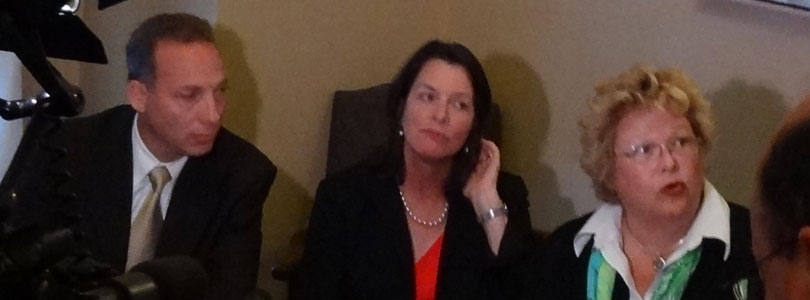HealthSource: Something They’d Never Do with Their Own Money
HealthSource RI — Rhode Island’s state-based ObamaCare health benefits exchange — is a government-run start-up company. Some folks in government had a concept for a new business model, and they used taxpayer dollars to invest in the idea.
That’s not entirely new; government officials are practically identifiable by their profligacy with other people’s money. But as proven by a 2009 report that the RI Center for Freedom & Prosperity has brought to light, in the case of HealthSource, Rhode Island government officials were not even willing to spend Rhode Island taxpayers’ money on this particular project. The final report for a “HealthHub RI” working group said this of an exchanged that, like HealthSource, customers don’t have to use in order to buy insurance (emphasis in original):
The key challenge for this option would be scale. This option would require a substantial infrastructure investment, which would be difficult to sustain in an optional model, particularly given the small size of the Rhode Island marketplace. In addition, here “the devil is in the details.” Substantial design efforts would be required to mitigate insurer incentives to select risk.
Assessment: Insufficient scale to justify investment. Do not pursue.
A summary report available on the Web site of the Faulkner Consulting Group notes the disappointment of participants in the study group that an exchange wouldn’t achieve their goals in Rhode Island. Contrary to the statement offered to GoLocalProv, today, by a HealthSource spokesperson, the fact that the federal government was willing to waste its own taxpayers’ money on the project doesn’t make the business model viable. It’s still a matter of scale and the ability to maintain the exchange over the long term.
As the full final HealthHub report explained, the only way it might make sense to initiate an exchange would be if all insurance plans in the state were processed through it.
That sheds a new light on early estimates of enrollment that Deb Faulkner (owner of the Faulkner Consulting Group) sent to the federal government on behalf of Koller when money for the federal Affordable Care Act (ACA; ObamaCare) began to flow, in 2011.
As previously noted on the Current-Anchor, a March 2011 projection, apparently developed by Faulkner and RI government officials (before the governor’s executive order creating the exchange), estimated seven times the enrollment that HealthSource actually achieved. It reached that number by assuming that all Rhode Islanders in the individual and small group markets would buy insurance through the exchange. There would therefore be 127,000 people with individual insurance and another 77,000 people covered through small group insurance through the exchange. *
A 2013 estimate by a different consultant than Faulkner, Jonathan Gruber, was still dramatically over-optimistic, but it did acknowledge that not everybody would go through the exchange. At that point, 5,000 individuals and 68,000 small group members were expected to continue to use other methods of acquiring insurance, leaving only 64,000 and 17,000 clients for HealthSource RI in the individual and small group markets, respectively. (The actual numbers achieved were 28,000 and 1,000, rounded to the nearest thousand.)
As the Center’s analysis of the summary report suggests, officials within Rhode Island government knew an exchange structured as described in the ACA would not work in Rhode Island. So, in the early stages of development, it appears as though they simply pretended that the exchange would not be “optional,” but would gain an immediate monopoly of the health insurance market in the Ocean State. And now that the bill for ongoing operations is coming closer to state taxpayers’ bank accounts, they’re offering other arguments for keeping up the expense… which, incidentally, the 2009 study also would undermine if anybody in government were paying attention as they would if it were their own money on the line.
* The number cited here for individual insurance includes projections for the “Basic Health Plan,” a subsidized benefit program that appears comparable to the role of Neighborhood Health Plan on the exchange.
Featured image: Taken in 2012, on the day the Supreme Court declined to invalidate the Affordable Care Act. From left to right: Steven Costantino, Secretary of the RI Executive Office of Health and Human Services; Elizabeth Roberts, Lieutenant Governor; and Christine Ferguson, Executive Director of HealthSource RI.


